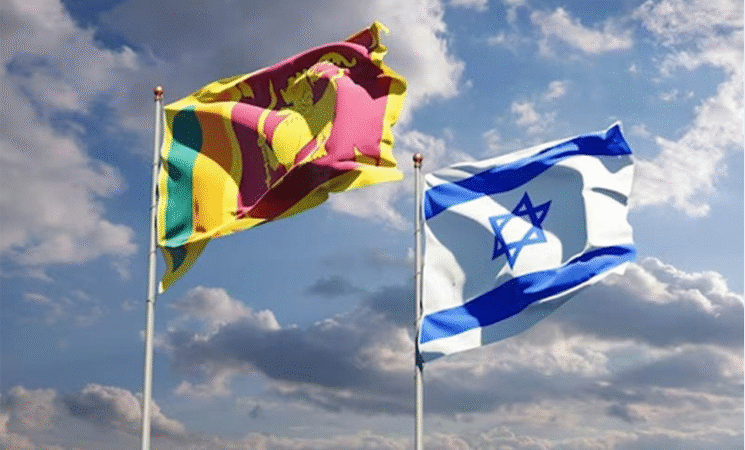4 August 2025, NIICE Commentary 11548
Dr Punsara Amarasinghe
In Arugam Bay, a sunny coastal town known for its pristine beaches in Sri Lanka, has now become the limelight of the Palestinian solidarity movement condemning the Hebrew welcome signs and Israeli tourists with a sense of vehement antipathy against Jews based on an allegation that Israelis try to monopolise Arugam Bay by turning it into a miniature Zionist colony. On the face of it, this allegation is driven by resentment stemming from the Muslim community on the island after the events of 7th of October 2023, as the local Muslim community in Arugam Bay welcomed Jewish visitors earlier, leasing some of their properties to build a Chabad House, a religious centre administered by an Orthodox Jewish Movement called Chabad-Lubavitch Hasidics. The foray in Arugam Bay in Sri Lanka exposes only the tip of the iceberg that looms in the Sri Lankan society, targeting Israeli tourists and manipulating public opinion to boycott everything related to Israel.
Jewish presence in Sri Lanka throughout history has been extremely minimal, if not zero. Even the minimal Jewish presence in Sri Lanka was largely attributed to the colonial occupation of the Portuguese, Dutch, and British, which did not accelerate “anti-Semitism” in the past century, as many Sri Lankans were generally less knowledgeable about the racial prejudices that existed in European space against Jewish communities. The present situation that Sri Lanka is witnessing regarding Israel is a stark illustration of anti-Semitism due to its explicit nature that encourages people to boycott Israeli products, disassociate Israeli tourists, and take many other measures. And most of the activists involved in such solidarity movements remain adamant in not admitting that what Gaza faces today was triggered by the gruesome events that occurred on the 7th of October, and their reluctance appears to be more evident when they ferociously deny discussing Israel’s right to return its hostages from Hamas captivity. Neither do they tolerate the dissent that tries to explain the real situation in Gaza or how Hamas procrastinates any possible avenue for a ceasefire agreement. All in all, the Solidarity movement in Sri Lanka denotes a one-sided narrative spreading seeds of hatred without knowing the long-standing cause for the turmoil in the Middle East.
The incidents related to Anti-Semitism in Sri Lanka have seen a robust rise parallel to protests led by the Palestinian solidarity movement in Sri Lanka, which is an apt indicator showing how cancel culture functions. Most recently, activists from the Palestinian solidarity movement launched a protest in front of the Ministry of Foreign Affairs building, demanding to revoke the visa-free entry for Israelis under allegations of genocide and crimes against humanity. But, the absurdity of this demand is that none of these protest movements revealed how the entire Israeli nation deserves to be punished for the military actions of the IDF, and it sounded more irrational as none of those protestors uttered a single word on the Russian visitors coming to Sri Lanka or Russian aggression in Ukraine.
Meanwhile, the government in Colombo stands between the devil and the deep blue sea without disclosing its official position on the Israeli-Palestinian conflict, which has been the well-accustomed policy of the Sri Lankan government for years regarding Israel. For instance, former President of Sri Lanka Mahinda Rajapaksa vociferously campaigned for Palestinian Statehood, but abashedly looked for military support from Jerusalem to crush LTTE terrorism in Sri Lanka. The stances of the present government of Sri Lanka maintain the same ambiguity, denoting Colombo’s apathy to state its position, which is connected with the economic benefits that the government anticipates by sending Sri Lankans to replace Palestinian labourers while harbouring anti-Semitic sentiments on the island.
It goes without saying that the rage of anger towards Israeli tourists has mainly derived from the Muslim community in Sri Lanka, driven by their emotional affinity with Palestinians, which resembles the Islamic doctrine of “Umma”, and their narratives are filled with bigotry towards Israeli visitors as colonisers who try to seize lands in Sri Lanka. The majority of Muslim activists in the island nation tend to portray visits by Israeli tourists to Sri Lanka in a way that might raise animosity towards every Israeli, which is by all means a manifestation of anti-Semitism. Yet many of the Muslim critics expressing views against Israeli tourists in Arugam Bay or elsewhere in Sri Lanka hardly admit that their actions explicitly embody anti-Semitism by projecting the very roots of “Anti-Semitism” as a European issue.
The silence maintained by the government and the mavericks in Sri Lankan society is a dangerous sign, which can radicalise certain fractions in the Muslim community. The continuity of anti-Semitic rhetoric buttressed by denying the other side of the story paves the path to spread Islamic radicalism, which can even transform into a breeding ground for terrorism or a shadowy ground for foreign agents.
Dr. Punsara Amarasinghe is a post-doctoral researcher affiliated to the Institute of Law, Politics and Development at Scuola Superiore Sant Anna, Pisa.

